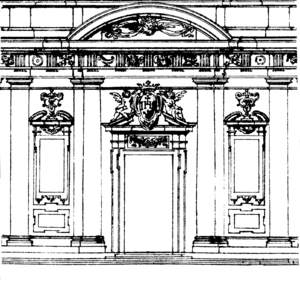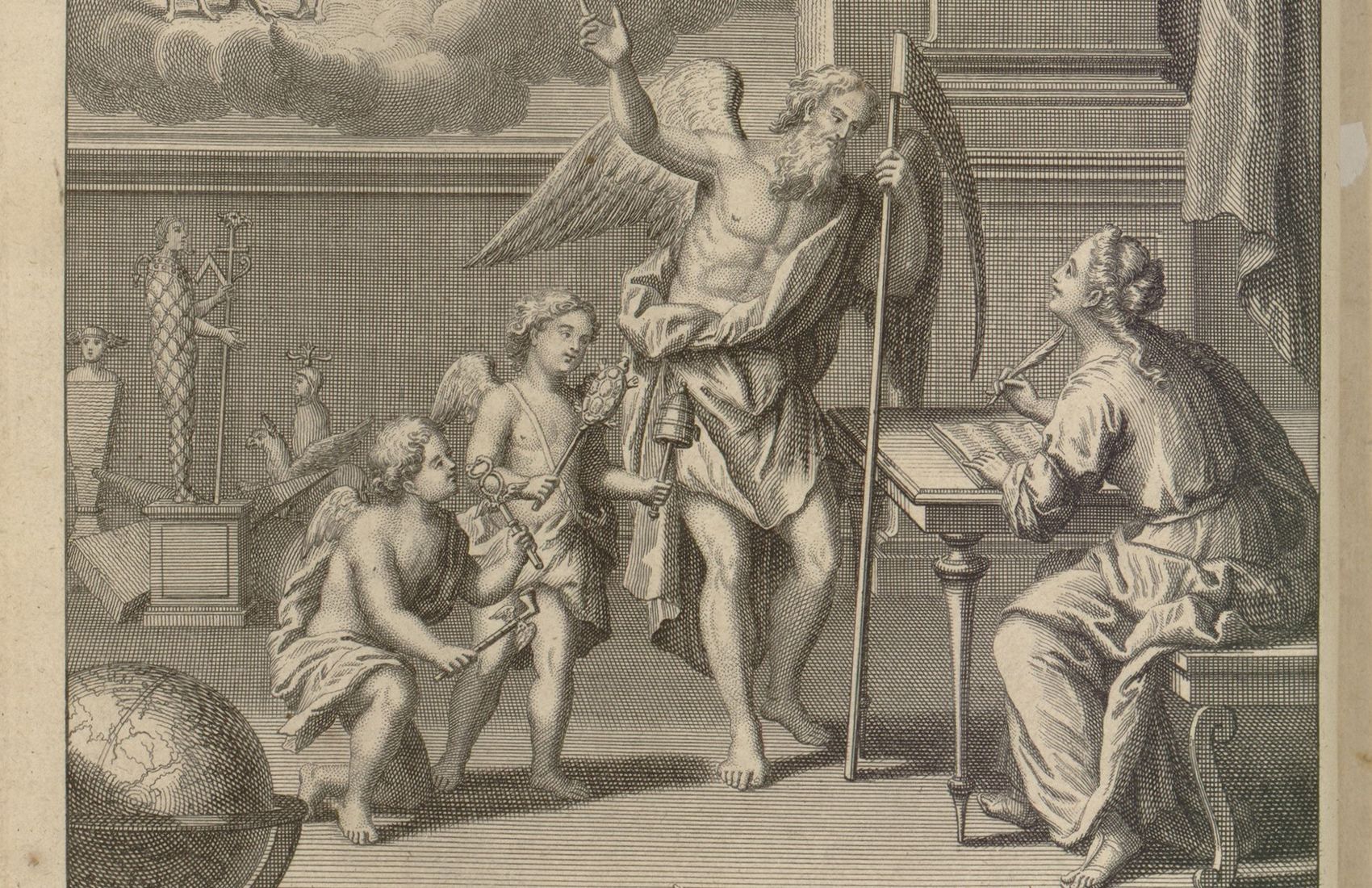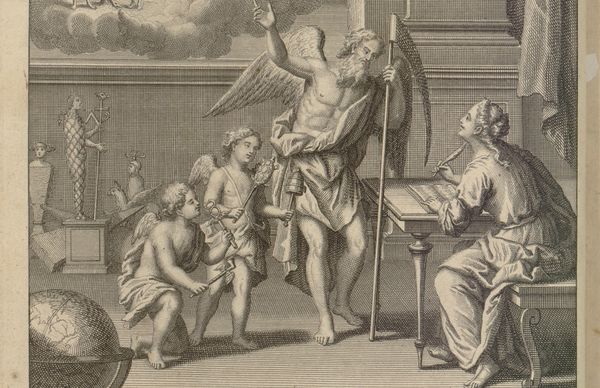|
|
| (42 intermediate revisions by 5 users not shown) |
| Line 1: |
Line 1: |
| − | <div style="align:center"><inputbox>
| + | {{Main page |
| − | type=search
| + | | card1 = {{Main page/Card |
| − | width=50
| + | | title = Monumenta |
| − | namespaces=Main**,Index,Page
| + | | description = Recalling the tradition of the ''Monumenta'' meant as the publication of sources, GATE ''Monumenta'' collect correspondence and works (manuscript and printed) of some jesuits or related to a specific subject. '''Read more''' |
| − | searchbuttonlabel=Search
| + | | image = Lafiteau.jpg |
| − | bgcolor=transparent
| + | }} |
| − | break=no
| + | | card2 = {{Main page/Card |
| − | placeholder=Search the whole GATE
| + | | title = Collections |
| − | </inputbox>
| + | | description = Collections are groups of documents or resources related to a subject or to a single author. A collection is composed only by documents preserved by APUG, usually unpublished, without an aim of completeness. '''Read more''' |
| − | </div>
| + | | image = APUG_Manuscripts.jpg |
| − | <blockquote class="templatequote">
| + | }} |
| − | <p style="font-size:95%;text-align:left">"Par archive, j’entends d’abord la masse des choses dites dans une culture, conservées, valorisées, réutilisées, répétées et transformées. Bref toute cette masse verbale qui a été fabriquée par les hommes, investie dans leurs techniques et leurs institutions, et qui est tissée avec leur existence et leur histoire. Cette masse de choses dites, je l’envisage non pas du côté de la langue, du système linguistique qu’elles mettent en œuvre, mais du côté des opérations qui lui donnent naissance. […] C’est, en un mot, […] l’analyse des conditions historiques qui rendent compte de ce qu’on dit ou de ce qu’on rejette, ou de ce qu’on transforme dans la masse des choses dites."</p>
| + | | card3 = {{Main page/Card |
| − | <div class="templatequotecite" style="font-size:100%;text-align:right">−Michel Foucault, <cite>Dits et écrits, Tome I</cite></div>
| + | | title = Lexicon of modernity |
| − | </blockquote>
| + | | description = The ''Lexicon of modernity'' is one of the editorial projects hosted on GATE. Its aim is to create an historical glossary of concepts used during the modern era. '''Read more''' |
| − | [[File:PUG marchio Archivio Storico PIENO.png|right|thumb|[https://archiviopug.org/ Historical Archives of the Pontifical Gregorian University] logo]]
| + | | image = Lexicon_Polemicum.jpg |
| − | | + | }} |
| − | '''Gregorian Archives Texts Editing''' ('''GATE''') is a collaborative project developed by the Historical Archives of the Pontifical Gregorian University (APUG).<br /> | + | }} |
| − | APUG preserves about 6,000 manuscripts, mostly works written by the Roman College Jesuits through four centuries, from its foundation in 1551 until today. A large amount of these codices are not still published, since they are texts prepared by professors for the lessons, correspondence, notes and sermons. <br/>
| + | __NOTOC__ |
| − | To value this heritage it has been decided to start an open and collaborative project where users from all over the world can give their contribution.<br />
| + | __NOFACTBOX__ |
| − | If you would like to cooperate to this project, please [[Special:Contact|fill this form]] to request an account and start your collaboration.
| + | <br> |
| − | | + | {{:Board}} |
| − | == Aims and goals == | |
| − | The main goal of GATE is to take advantage of the possibilities offered by a simple and ready to use software like MediaWiki<ref>https://www.mediawiki.org/wiki/MediaWiki</ref>, in order to publish unedited sources owned by APUG. Sources like those that will be published, usually require years of scholarly work and consistent funding, especially for digitization and the development and design of web platforms. Sometimes these preliminary requirements discourage the start of such projects, especially by institutions with limited resources. <br />
| |
| − | [[File:APUG_Manuscripts.jpg|400px|thumb|left|Historical Archives of the Pontifical Gregorian University manuscripts]]
| |
| − | | |
| − | The use of MediaWiki to transcribe sources has a first example in the Wikisource project<ref>https://en.wikisource.org/wiki/Main_Page</ref>, where thousands of printed books have been transcribed without interruption since 2003. Later, several projects started to use MediaWiki to transcribe manuscript sources too. The main goal of these initiatives was to involve many people in a crowdsourced transcription activity, usually related to huge corpora of manuscripts otherwise difficult to transcribe only through the work of few scholars. Today, projects such as Transcribe Bentham<ref>http://www.transcribe-bentham.da.ulcc.ac.uk/td/Transcribe_Bentham</ref> and Scripto<ref>http://scripto.org/</ref> are the testimonials of successful experiences that have involved thousands of people in the transcription of millions of manuscript words, sometimes bringing to the world previously unknown facts and writings.<br />
| |
| − | | |
| − | The GATE project intends to follow and continue these experiences, involving not only a specialized public but specifically the youngest generations. It is possible to annotate the texts, finding entities such as Names, Works, Places, Terms and Objects, thanks to the implementation of the Semantic MediaWiki (SMW) extension<ref>https://www.semantic-mediawiki.org/wiki/Semantic_MediaWiki</ref>. SMW is used for different purposes:
| |
| − | * to perform semantic annotation on the texts;
| |
| − | * to make ‘semantic’ the letters metadata;
| |
| − | * to empower the results of general search queries.
| |
| − | Thanks to the specific architecture of Mediawiki which fosters discussion among users, students and users can also argue about the correct interpretation of single words or work together on the identification of a cited work.
| |
| − | | |
| − | == Projects ==<br />
| |
| − | To be brief, then, let us say that history, in its traditional form, undertook to 'memorize' the monuments of the past, transform them into documents, and lend speech to those traces which, in themselves, are often not verbal, or which say in silence something other than what they actually say; in our time, history is that which transforms documents into monuments. In that area where, in the past, history deciphered the traces left by men, it now deploys a mass of elements that have to be grouped, made relevant, placed in relation to one another to form totalities. There was a time when archaeology, as a discipline devoted to silent monuments, inert traces, objects without context, and things left by the past, aspired to the condition of history, and attained meaning only through the restitution of a historical discourse; it might be said, to play on words a little, that in our time history aspires to the condition of archaeology, to the intrinsic description of the monument.
| |
| − | | |
| − | M. Foucault, ''The Archaeology of Knowledge.'' (Pantheon Books, New York, p. 7)
| |
| − | | |
| − | | |
| − | === [[Epistolae Bellarmini Cardinalis Project|''Epistolae Bellarmini Cardinalis'' Project]] ===
| |
| − | This project aims to transcribe all of the 2,674 letters written and received by Roberto Bellarmino during his cardinalate; this correspondence was collected and transcribed by the Jesuits François Xavier Le Bachelet (1855-1925) and Sebastian Peter Cornelis Tromp (1889-1975) in nine volumes of typescript transcriptions preserved by APUG, almost ready to be published but, due to unknown reasons, not yet published.
| |
| − | | |
| − | === [[Athanasius Kircher Project]] ===
| |
| − | The starting point of this project are the 14 volumes of letters sent by and to Athanasius Kircher and five manuscripts, mostly unpublished, all of them preserved by APUG. Several years ago, Stanford University digitized the letters and made them accessible via LunaImaging software <ref>http://web.stanford.edu/group/kircher/cgi-bin/site/</ref>. To continue and complete this work, we have started to transcribe the letters and in addition, we will also proceed to transcribe a selection of Kircher’s published works and to collect a ''Bibliographia Kircheriana'', containing all the works and papers about Kircher published in the last three centuries.<br /> | |
| − | | |
| − | The whole Athanasius Kircher project is generously supported by Fondazione Sorgente Group.<ref>http://www.fondazionesorgentegroup.com/english_home.html</ref>.
| |
| − | | |
| − | === [[Angelo Secchi Project]] ===
| |
| − | Angelo Secchi (1818-1878) was a jesuit astronomer and scientist, one of the fathers of the modern Astrophysics. APUG preserves a large amount of his works, both handwritten and printed - with a lot of manuscript addition - and his extensive correspondence with the most important scientists of his time. With about 8,000 letters and more than 1,500 people involved, this correspondence is a treasure for the History of Science studies.
| |
| − | | |
| − | == Copyrights ==
| |
| − | '''Unless otherwise indicated''', all files and contributions (transcriptions, pages, comments) uploaded and submitted to GATE by administrators and users are considered to be released under the [https://creativecommons.org/licenses/by-nc-nd/4.0/ '''Creative Commons Attribution-NonCommercial-NoDerivatives 4.0 International License''']. All the rights on the images of the manuscripts or other documentation are property of the Historical Archives of the Pontifical Gregorian University ([[User:ArchivesPUG]]). If you need high resolution images for your publications or for other usages, please contact us [[Special:Contact|filling this form]]. [[File:Cc_by-nc-nd_euro_icon.svg|right]]<br />
| |
| − | | |
| − | Your contributions to GATE must be original or, at most, copied from public domain or similar free sources. Remember to always cite your sources and, more important, '''do not submit copyrighted work without permission'''.<br />
| |
| − | | |
| − | Report any abuses to the project administrators, [[Special:Contact|using this form]].
| |
| − | | |
| − | == Acknowledgements==
| |
| − | GATE has been set up thanks to the help and advice of many people, sometimes hidden behind usernames within the Mediawiki community. Starting from the IT office of the Pontifical Gregorian University, here we are particularly glad to mention these Mediawiki users : [[mw:User:Ciencia_Al_Poder|Jesús Martínez Novo]], [[mw:User:Cavila|Cavila]], [[mw:User:F.trott|F.trott]], [[mw:User:MarkAHershberger|MarkAHershberger]], [[mw:User:Kghbln|Kghbln]] and [[mw:User:Yaron_Koren|Yaron Koren]]. <br />
| |
| − | | |
| − | We also would like to thank all the students who have contributed to GATE with their passionate and laudable work. <br />
| |
| − | | |
| − | Within each project page other people are mentioned for their special help and contribution.
| |
| − | | |
| − | == References ==
| |
| − | <references />
| |
| − | == External links ==
| |
| − | * [https://archiviopug.org/ Historical Archives of the Pontifical Gregorian University website]
| |
| − | * [http://www.unigre.it/home_page_it.php Pontifical Gregorian University website]
| |
| − | * [http://claviusontheweb.it/ Clavius on the web project]
| |




